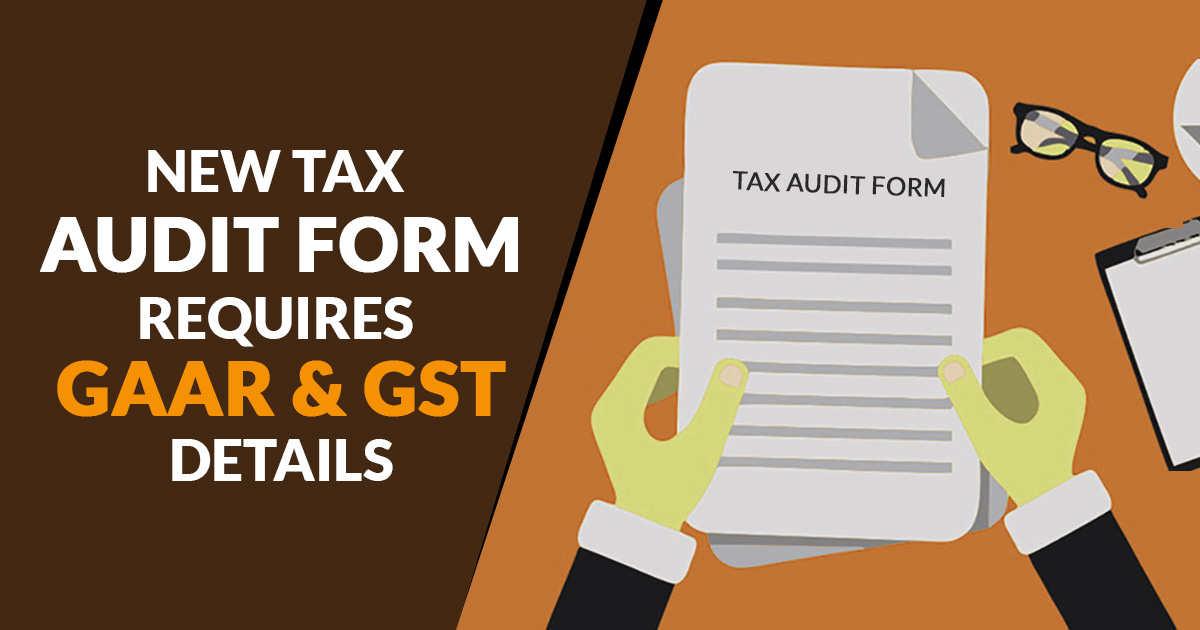The Income Tax department has updated a form to fill with information regarding the general anti-avoidance rules (GAAR), the goods and services tax (GST), and secondary adjustments. The form 3CD is needed to be filed by all professionals and auditable companies. The professionals or taxpayer whose collective gross receipts are more than Rs. 5 million annually and the companies whose annual turnover ranges more than Rs. 10 million a year, are required to furnish the form in audit report as mentioned. The modifications made in the form will be effective starting from August 20, will as well consist information such as country-by-country reporting (CbCr), deemed dividend, specific financial transactions. Currently, the companies which are not liable for tax audits are needed that they fill GST details.
With the modifications, this information will be used while filing tax audit instances. The income tax department follows GST information to check out if there is any such case of evasion while filing direct taxes. The form is furnished with the information of registered and not registered categories of total expenditure under the GST regime. The form also mentions details under the column about the assessee on whether he/ she has registered for an impermissible avoidance arrangement.
Read Also: Types of Audit Provisions Under GST by Chartered Accountants
A tax expert says that all the changes found in form are quite relevant as per the laws, but one which is related to GAAR is very interesting as the auditor is required to inform or call out in case of impermissible arrangements. He further said that this move will render extra responsibility on the auditor, especially for the locations where the precedence is not available and the interpersonal matter priorities are higher. The rules mentioned for GAAR provides freedom to the tax department to scrutinize transactions if they find out any tax avoidance starting from April 1, 2017.
A tax auditor is required to grasp the applicability of the procedure in the following assessees and execute an appropriate plan to perform the procedure in advance and also allow professional experience in advance of reporting such additional needs. A tax expert said, “We also expect that Institute of Chartered Accountants of India will also issue the guidance on performing the procedures on these additional requirements very soon.”










